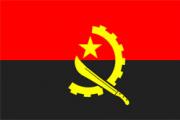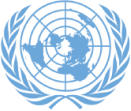Security Council
Open Debate on the Trafficking in Persons in Conflict Situations
20 December 2016
Mr. President,
Let me welcome and thank the distinguished President of the Government of Spain, H.E. Mr. Mariano Rajoy for presiding over this important debate and the Spanish delegation for selecting this critical issue of contemporary life as a central theme in the program of work of its presidency of the Security Council.
We are grateful to the Secretary-General, to Special Representative, Mrs. Zainab Bangura, to UNODC Executive Director Mr. Yuri Fedotov and to the distinguished activists for the Yazidi Women’s Rights, Ms. Ameena Saeed Hasan and Ms. Nadia Murad Basee Taha, for their poignant testimonies.
Mr. President,
Trafficking in human beings is a coarse violation of human rights, and an infringement on the dignity and integrity of the human being. This type of crime is on the increase, having become a large source of income for organized crime worldwide, in parallel with drugs and arms trafficking.
The basic approach to counter the phenomena is the commitment of countries and the international community to improve the socio-economic conditions of the most vulnerable and guarantee fundamental rights to all their citizens.
A collective effort is crucial to upgrade the fight against the trafficking in persons, by garnering support of all nations, communities, institutions and individuals as essential prerequisites to successfully address the problem.
Mr. President,
Trafficking in human beings in conflict situations lead to sexual slavery, to trade in women and girls, to forced marriages and to the most appalling human rights violations.
These tactics are used by terrorist groups such as Al Shabaab in Somalia, Boko Haram in Nigeria, ISIL in Iraq and Syria, LRA and other armed and terrorist groups in the DRC.
Modern slavery is one of the most significant human rights tragedy of modern times, with multiplying effect in conflict situations, namely in Africa, in the Middle and Far East.
The Security Council, as we are doing today, through this debate and the adoption of the Resolution 2331, decided to continue sending a strong message concerning this egregious violation of human rights, by qualifying the trafficking and the ensuing enslavement as war crimes and crimes against humanity, and broadening the jurisdiction covering this type of crime.
In addition, the United Nations system has been mobilized in coordinating efforts to combat modern-day slavery in conflict situations. Trafficking in persons takes place in countries and regions of Africa, the Middle East, Latin American and the Far East, with people being recruited for a life of exploitation and slavery in Europe, the USA and elsewhere.
Moreover, criminal networks recruit desperate people in search of a better life, including children, thus arising the imperative need of the phenomena, to be considered as an issue related to international peace and security, as expressed in the previous statement by the President of the Security Council, adopted in December 2015, since trafficking in persons, especially by terrorist groups, undermines the rule of law and contributes to other forms of transnational organized crime, which exacerbates conflicts and foster insecurity.
Mr. President,
Responding to the increased awareness on the phenomena, Angola adopted legislation criminalizing the traffic in human beings, by developing specific mechanisms to prevent and combat this type of crime.
The aim is to step up the fight against the trafficking, ensure assistance, recovery, rehabilitation and the reintegration of victims; besides, the justice reform executive program, and legislative measures were adopted in support of the victims, updating legislation, including the adoption of a new Penal Code, in order to respond to the current problems faced by Angola on this issue.
Angola acceded to the United Nations Convention against Transnational Organized Crime and its additional Protocol on the Prevention, Suppression and Punishment of Trafficking in Persons, Especially Women, as well as to other relevant international Conventions and instruments related to the eradication of child and forced labor and to slavery.
In conclusion Mr. President, further work is needed in order for countries, without a comprehensive regime, to combat the trafficking in persons and the protection of victims to build on the experience from others who made most progress. To this end, Governments must deploy efforts to prevent, punish and eradicate the trafficking in persons, as well as to ensure the physical safety of victims, while ensuring that legal systems contain provisions addressing the needs and due compensation to the victims.
I Thank you, Mr. President.


